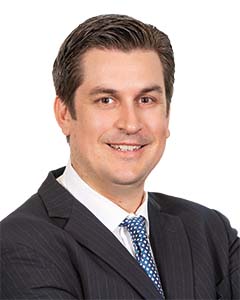Amid the current wave of publicity surrounding deals involving Special Purpose Acquisition Companies (SPACs) and the explosion in popularity for utilisation of SPACs for equity capital market transactions among institutional and retail investors alike, the Maples Group has continued to see significant demand for Cayman Islands exempted companies to act as the issuer vehicle on SPAC initial public offering (IPO) transactions.

Partner and head of the Asia corporate practice
Maples Group
The use of a Cayman Islands exempted company as the issuer in these deals is the standard approach for Chinese and Asia-based SPAC IPO transactions. A Cayman Islands exempted company is incorporated to act as the issuer for the purposes of listing on one of the major US securities exchanges, the New York Stock Exchange (NYSE) or the Nasdaq.
Why are Cayman Islands exempted companies chosen for these transactions?
The Cayman Islands exempted company is a vehicle whose characteristics are well understood, both in China, the rest of Asia and in the North American market, among others. There is also increased interest in using offshore vehicles for IPOs on European securities exchanges including Euronext.
In Asia, given significant and ongoing global investor interest, the Hong Kong Stock Exchange and Singapore Exchange are engaged in public consultations concerning changes to their listing rule regimes that would permit SPAC issuer listings. Such changes, if they occur, are expected to take effect later this year. At the time of writing, the NYSE and Nasdaq are where the vast bulk of the SPAC IPOs are being launched as Chinese and Asia-based SPAC promoters seek market exposure and access to the immense US investor pool of capital on such exchanges, particularly the institutional and high net worth investor pool.
When it comes to China and Asia, Cayman Islands and British Virgin Islands (BVI) structures continue to be a powerful tool providing Chinese and Asia-based SPAC promoters with the right corporate and governance framework that will allow them to attract and maintain investor funding, incentivise management and promote the objectives of key stakeholders. Additionally, the use of a Cayman Islands exempted company provides the right structure for the SPAC to be in a position to consummate a business combination following the IPO, once the SPAC’s board has identified a prospective target for the SPAC to acquire/merge with under such business combination (commonly known as the de-SPAC transaction). There is increasing interest in, and consideration of, Chinese and Asia-based operating businesses as acquisition targets for de-SPAC transactions.
The SPAC is set up as a Cayman Islands exempted company and can be established quickly with the incorporation documents returned from the Cayman Islands Registrar of Companies in 24 to 48 hours. The SPAC is incorporated in the same way as any other Cayman Islands exempted company, although with a SPAC-specific memorandum and articles of association (M&A) incorporating certain SPAC provisions, including provisions regulating the SPAC’s entry into a prospective business combination (de-SPAC). The M&A will govern the SPAC’s operations for its lifespan (generally, two years) until such time as the SPAC identifies and consummates a de-SPAC transaction or, if it does not do so within the prescribed lifespan or if it identifies a de-SPAC deal that is not approved by the requisite majority of investors, then the SPAC will be liquidated and dissolved and the subscription funds would then be returned to investors, minus certain expenses associated with the SPAC IPO and the SPAC’s maintenance (if this occurs, then the founders will lose their capital on liquidation). The public shareholders of a SPAC will be entitled to redeem their shares (and receive the return of their funds) under a de-SPAC even if they vote for the de-SPAC to occur.
In addition to the SPAC, a Cayman Islands vehicle is also generally formed at the same time to act as the sponsor vehicle to the SPAC although the sponsor vehicles can be set up in onshore jurisdictions (such as Delaware). If a Cayman Islands sponsor vehicle is used, it is either another Cayman Islands exempted company, a Cayman Islands limited liability company (LLC) or Cayman Islands exempted limited partnership (ELP).
The Cayman Islands LLC (which is modelled on the Delaware LLC) was introduced in 2016 and has recently started to gain more traction in China and Asia as investors, asset managers and promoters have become more familiar with its flexibility and advantages when contrasted against more traditional corporate structures. A significant number of the SPAC transactions the Maples Group acts on now involve the establishment of a Cayman Islands LLC to act as the sponsor vehicle.
The Cayman Islands LLC is an entity with corporate legal personality (unlike the ELP, which technically does not have a separate legal personality) that also provides investors with the flexibility typically found in a partnership context to agree economic terms, such as capital accounts and distribution mechanics. Another advantage of the Cayman Islands LLC is that the obligations and duties for its operators can be drafted in order to suit the specific commercial requirements of the SPAC promoter and the founding investors.
The Cayman Islands LLC agreement can authorise each party to act in its own interests as opposed to commercial arrangements structured through companies (where directors of those companies have fiduciary duties that require them to act in the interests of the company as a whole, rather than the investors who appointed them, which is perhaps a more realistic governance approach). The sponsor’s investors will typically include the promoters of the SPAC (such as the promoters or individuals who will be acting on the board of the SPAC). We expect that the use of Cayman Islands LLCs will continue to increase in connection with Asia SPAC transactions, together with other Cayman Islands structures such as ELPs.
Matt Roberts is a partner and head of the Asia corporate practice at Maples Group. He can be contacted on +852 3690 7405 or by email at matt.roberts@maples.com





















